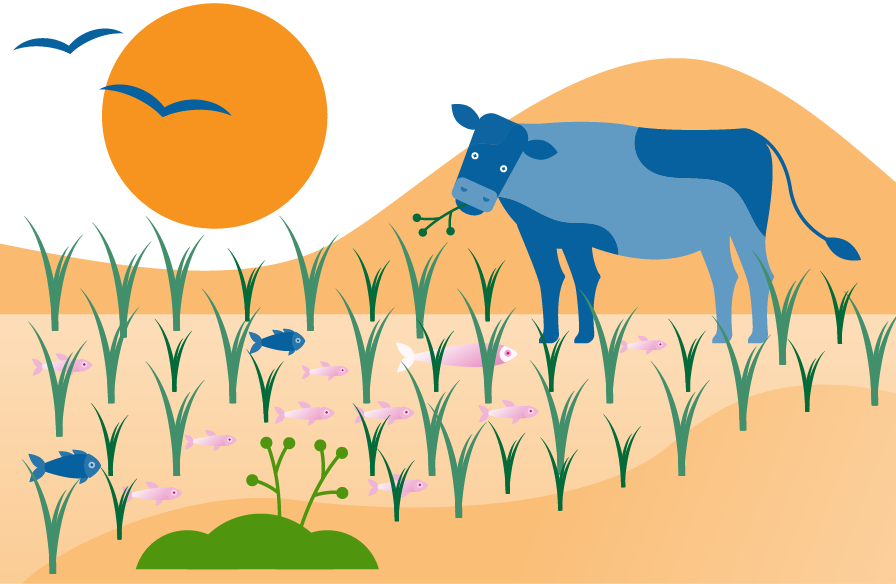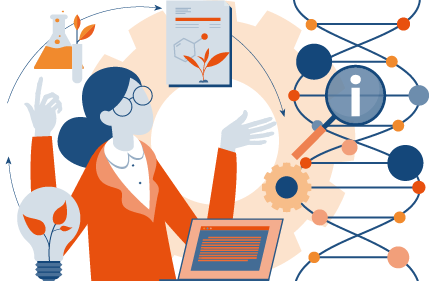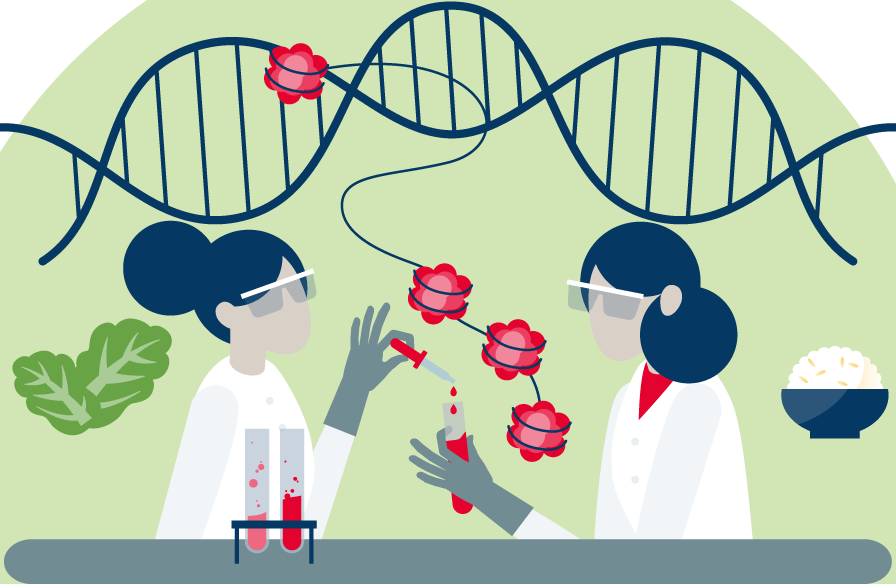Agricultural Biotechnology Seminar Series 2024 – Seminar 2: The Role of Plant Breeding Innovations in Crop Improvement – Status and Prospects
-
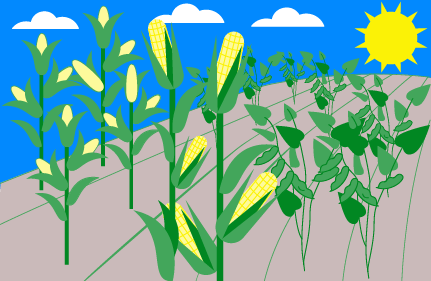
June 25, 2024
8:00 am - 10:00 amVirtual (UTC+7)
Hanoi, Viet Nam
The rapid adoption of novel plant breeding technologies worldwide is due to their precision and simplicity. Potentially, these innovations can result in practical solutions to the challenges faced by present-day agriculture. The recent surge in research and development involving this suite of technologies makes evident their application in improving productivity and imparting quality traits to a broad range of crops.
New plant breeding technologies are expanding across the APEC region. These innovations could contribute to increasing productivity, building resilient supply chains, and enabling environmental sustainability. To harness the benefits of these advancements, it is crucial that economies continue to discuss the science, research, and development, and support an enabling policy environment.
The second seminar in the 2024 Agricultural Biotechnology Seminar Series, this expert-led event will begin with updates on the development and application of plant breeding innovation, followed by a facilitated discussion on policy development for agricultural biotechnology. The workshop will be implemented by the Agriculture & Food Systems Institute (AFSI), with Viet Nam as the lead economy and host of the event.
Agricultural Biotechnology Seminar Series
By bringing together policymakers, risk assessors, and scientists, the series seeks to foster greater participation and enhance engagement in the APEC High Level Policy Dialogue on Agricultural Biotechnology (HLPDAB) outside of the annual meeting.
This seminar’s objectives are:
- Introduce the status within APEC economies of agricultural biotechnology for crop improvement, focusing on new breeding technologies and, particularly, genome editing.
- Exchange knowledge on the policy landscape for agricultural biotechnology development.
- Provide an update on the global status of applying plant breeding innovation to advance crop productivity and climate tolerance.
- Discuss the development of policies and outreach strategies related to agricultural biotechnology for crop improvement.

Agenda
8:00 am
Technical Introduction
Dr. Andrew Roberts
Chief Executive Officer, Agriculture & Food Systems Institute (AFSI), USA
8:10 am
Welcome and Opening Remarks
Assoc. Prof. Dr. Nguyen Huu Ninh
Deputy Director, Department of Science, Technology and Environment, Ministry of Agriculture and Rural Development (MARD), Viet Nam
8:20 am
Introduction on the National Program on Applied Research and Biotechnology Development
Prof. Dr. Le Huy Ham
Chairman of the National Program for Biotechnology, Ministry of Science and Technology, Viet Nam
8:35 am
Biotech Crops in Viet Nam: Potential and Orientation of Their Development and Application in Plant Breeding
Prof. Dr. Pham Van Toan
Chair–GM Food and Feed Committee, Vice President–Vietnam Academy of Agricultural Science, Ministry of Agriculture and Rural Development (MARD), Viet Nam
8:50 am
Global Status of Plant Breeding Innovation to Advance Crop Productivity and Climate Tolerance
Prof. Dr. Wayne Parrott
Distinguished Research Professor, Institute of Plant Breeding, Genetics & Genomics University of Georgia, USA
9:05 am
Global Perspectives on the Development of Policies and Strategies for Genome Edited Plants
Dr. Thorben Sprink
Senior Scientist, Genome Editing Lab, Federal Research Centre for Cultivated Plants, Julius Kühn Institute, Germany
9:20 am
Break
9:30 am
Panel Discussion: Outlook and Policy Development for Agricultural Biotechnology
Dr. Andrew Roberts
9:55 am
Closing Remarks
Dr. Nguyen Thi Thanh Thuy
Director General, Department of Science, Technology and Environment, Ministry of Agriculture and Rural Development (MARD), Viet Nam
Speakers
Dr. Le Huy Ham
Chairman of the National Program for Biotechnology, Ministry of Science and Technology, Viet Nam
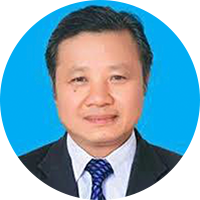 Prof. Le Huy Ham is the current Chairman of National Program for Biotechnology, Ministry of Science and Technology, as well as Chairman of Science Council of the Agricultural Genetics Institute, Chairman of the National GM Food Feed Committee, and Deputy Chairman of the Biosafety Board, Ministry of Agriculture and Rural Development (MARD), where he provides direction and guidance on biosafety policy in Vietnam.
Prof. Le Huy Ham is the current Chairman of National Program for Biotechnology, Ministry of Science and Technology, as well as Chairman of Science Council of the Agricultural Genetics Institute, Chairman of the National GM Food Feed Committee, and Deputy Chairman of the Biosafety Board, Ministry of Agriculture and Rural Development (MARD), where he provides direction and guidance on biosafety policy in Vietnam.
Prof. Le received a B.S. in Biology and Ph.D in Plant Biochemistry from Chisinau National University in the Republic of Moldova (formerly the Soviet Union), in 1982 and 1986, respectively. Throughout his outstanding career, he has held many important positions in Vietnam, including Director General of the Institute of Agricultural Genetics (2006-2017), Chairman of the Scientific Committee for the Institute of Agricultural Genetics (since 2017), and Dean of the Faculty of Agriculture Technology, Hanoi National University. He has published 265 scientific articles in international and national journals and six books covering a wide range of scientific topics, including agricultural biotechnology, molecular breeding, ecological risk assessments, etc. In the area of mutation breeding, Prof. Le is the National Coordinator of IAEA RAS projects 5070, RAS 5077, and FNCA and is a member of the Asia Pacific mutation breeding network.
Dr. Pham Van Toan
Chair–GM Food and Feed Committee and Vice President–Vietnam Academy of Agricultural Science, Ministry of Agriculture and Rural Development (MARD), Viet Nam
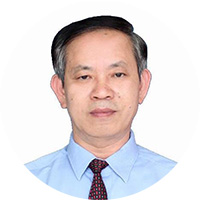 Prof. Pham Van Toan is Vice President of the Vietnam Academy of Agricultural Sciences (VAAS). He completed his undergraduate and graduate education at the Humboldt University in Berlin, Germany. Prof. Pham has served as the Director of the Post Graduate Training Department since 2011. Previously, he was the Head of the Department of Agricultural Microbiology at Vietnam Agricultural Science Institute (VASI) and the Soil and Fertilizer Institute, as well as the Director of the Office for the Biotechnology Program in Agriculture at the Ministry of Agriculture and Rural Development (MARD). He has conducted research in the field of applied microbiology in agriculture, such as biofertilizers, biopesticides, and biotreatment of environmental pollution. He has also managed research and development and post-graduate training in the field of biotechnology, biosafety of genetically modified organisms (GMOs), and GMO products. Prof. Pham is the Secratary of the biosafety committees and the Food and Feed Safety Committee at MARD and the President of the Scientific Council of VAAS.
Prof. Pham Van Toan is Vice President of the Vietnam Academy of Agricultural Sciences (VAAS). He completed his undergraduate and graduate education at the Humboldt University in Berlin, Germany. Prof. Pham has served as the Director of the Post Graduate Training Department since 2011. Previously, he was the Head of the Department of Agricultural Microbiology at Vietnam Agricultural Science Institute (VASI) and the Soil and Fertilizer Institute, as well as the Director of the Office for the Biotechnology Program in Agriculture at the Ministry of Agriculture and Rural Development (MARD). He has conducted research in the field of applied microbiology in agriculture, such as biofertilizers, biopesticides, and biotreatment of environmental pollution. He has also managed research and development and post-graduate training in the field of biotechnology, biosafety of genetically modified organisms (GMOs), and GMO products. Prof. Pham is the Secratary of the biosafety committees and the Food and Feed Safety Committee at MARD and the President of the Scientific Council of VAAS.
Dr. Nguyen Thi Thanh Thuy
Director General Department of Science, Technology and Environment, Ministry of Agriculture and Rural Development (MARD), Viet Nam
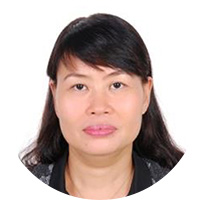 Dr. Nguyen Thi Thanh Thuy serves as Director General of the Department of Science, Technology and Environment, Ministry of Agriculture and Rural Development (MARD), Vietnam. The Department manages research and development programs, including policy support and capacity building activities for regulatory systems in agricultural biotechnology. She is a Biologist by training, having completed a B.S. in Biochemistry from Simferopol University, Russia and a Ph.D. in Biology from National Kyiv University, Ukraine. Her professional experience includes being a Postdoctoral Research Scientist at the Plant Molecular Biology Lab, Texas Tech University, USA and the National Agricultural Research Center, Japan. Her extensive research and professional experience has been in molecular breeding and marker assisted selection. Before joining the Ministry of Agriculture and Rural Development, she served as Researcher and Deputy Director of the Agricultural Genetics Institute.
Dr. Nguyen Thi Thanh Thuy serves as Director General of the Department of Science, Technology and Environment, Ministry of Agriculture and Rural Development (MARD), Vietnam. The Department manages research and development programs, including policy support and capacity building activities for regulatory systems in agricultural biotechnology. She is a Biologist by training, having completed a B.S. in Biochemistry from Simferopol University, Russia and a Ph.D. in Biology from National Kyiv University, Ukraine. Her professional experience includes being a Postdoctoral Research Scientist at the Plant Molecular Biology Lab, Texas Tech University, USA and the National Agricultural Research Center, Japan. Her extensive research and professional experience has been in molecular breeding and marker assisted selection. Before joining the Ministry of Agriculture and Rural Development, she served as Researcher and Deputy Director of the Agricultural Genetics Institute.
Dr. Wayne Parrott
Distinguished Research Professor, Institute of Plant Breeding, Genetics & Genomics, University of Georgia, USA
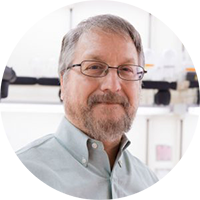 Dr. Wayne Parrott received a degree in agronomy from the University of Kentucky, and M.S. and Ph.D. degrees in Plant Breeding and Plant Genetics from the University of Wisconsin-Madison. He joined the faculty at the University of Georgia in 1988. Since then, he has published ~115 journal articles in refereed publications and 14 book chapters based on his research. He is actively engaged in training graduate students and postdoctoral fellows and teaches graduate-level courses in genetics and undergraduate courses in agroecology and sustainable agriculture.
Dr. Wayne Parrott received a degree in agronomy from the University of Kentucky, and M.S. and Ph.D. degrees in Plant Breeding and Plant Genetics from the University of Wisconsin-Madison. He joined the faculty at the University of Georgia in 1988. Since then, he has published ~115 journal articles in refereed publications and 14 book chapters based on his research. He is actively engaged in training graduate students and postdoctoral fellows and teaches graduate-level courses in genetics and undergraduate courses in agroecology and sustainable agriculture.
He is a past director of the University of Georgia’s Plant Center and served as a director for the NSF plant genome program in Washington and is currently the secretary for the American Society of Plant Biologists. He has served terms on the editorial boards of biotechnology journals. He is a past chair of the biotechnology section of the Crop Science Society of America and of the plant section of the Society for In Vitro Biology. He is a fellow of both societies, as well as of AAAS. He has traveled extensively throughout Latin America and other countries and advised legislators and regulators in the various countries on the requisites for a functional regulatory system that ensures the safety of modified products in agriculture.
Dr. Thorben Sprink
Senior Scientist, Genome Editing Lab, Federal Research Centre for Cultivated Plants, Julius Kühn Institute, Germany
 Dr. Thorben Sprink started studying plant biotechnology at Leibniz University Hannover in 2007, finishing his master’s degree in early 2012. In spring 2012, he joined the Julius Kühn Institute’s Institute for Biosafety in Plant Biotechnology led by Dr. Ralf Wilhelm. He worked on double strand breaks and their repair in meiosis during his Ph.D. and finished his thesis on “SPO11 dependent initiation of meiotic double strand breaks in Arabidopsis thaliana” in early 2015. In 2013, he started working on the biosafety of sequence-specific nucleases. Since 2015, he has been a Senior Scientist and from 2017, he led his own working group on genome editing and synthetic biology. He is working on the development of new technologies for targeted genome modification and their regulation. Dr. Sprink is the author of several publications dealing with genome editing and their regulatory approaches, and he has organized and presented at several workshops dealing with this topic over the years.
Dr. Thorben Sprink started studying plant biotechnology at Leibniz University Hannover in 2007, finishing his master’s degree in early 2012. In spring 2012, he joined the Julius Kühn Institute’s Institute for Biosafety in Plant Biotechnology led by Dr. Ralf Wilhelm. He worked on double strand breaks and their repair in meiosis during his Ph.D. and finished his thesis on “SPO11 dependent initiation of meiotic double strand breaks in Arabidopsis thaliana” in early 2015. In 2013, he started working on the biosafety of sequence-specific nucleases. Since 2015, he has been a Senior Scientist and from 2017, he led his own working group on genome editing and synthetic biology. He is working on the development of new technologies for targeted genome modification and their regulation. Dr. Sprink is the author of several publications dealing with genome editing and their regulatory approaches, and he has organized and presented at several workshops dealing with this topic over the years.
Dr. Andrew Roberts
Chief Executive Officer, Agriculture & Food Systems Institute (AFSI), USA
 Dr. Andrew Roberts joined the Agriculture & Food Systems Institute (AFSI) in December 2009 as the Deputy Director of the Center for Environmental Risk Assessment (CERA), where he developed tools and materials for use in training and capacity building related to the problem formulation approach to environmental risk assessment and served as the coordinator for CERA’s capacity building projects under the USAID-funded South Asia Biosafety Program (SABP) and the World Bank-funded Partnership for Biosafety Risk Assessment and Regulation, in Bangladesh, Pakistan, and Vietnam. He also provided technical support for capacity building work in Brazil, India, Japan, Chile, and South Africa. In January 2015, he became the director of CERA, as well as the Center for Safety Assessment of Food and Feed (CSAFF), which worked on food and feed safety assessment for foods derived from genetically engineered plants. The two centers were later consolidated under the Research Foundation, for which he became Deputy Executive Director in January 2017. When the organization became the Agriculture & Food Systems Institute in 2020, his title shifted to Vice President – Biotechnology, and he assumed the role of Chief Executive Officer later that year.
Dr. Andrew Roberts joined the Agriculture & Food Systems Institute (AFSI) in December 2009 as the Deputy Director of the Center for Environmental Risk Assessment (CERA), where he developed tools and materials for use in training and capacity building related to the problem formulation approach to environmental risk assessment and served as the coordinator for CERA’s capacity building projects under the USAID-funded South Asia Biosafety Program (SABP) and the World Bank-funded Partnership for Biosafety Risk Assessment and Regulation, in Bangladesh, Pakistan, and Vietnam. He also provided technical support for capacity building work in Brazil, India, Japan, Chile, and South Africa. In January 2015, he became the director of CERA, as well as the Center for Safety Assessment of Food and Feed (CSAFF), which worked on food and feed safety assessment for foods derived from genetically engineered plants. The two centers were later consolidated under the Research Foundation, for which he became Deputy Executive Director in January 2017. When the organization became the Agriculture & Food Systems Institute in 2020, his title shifted to Vice President – Biotechnology, and he assumed the role of Chief Executive Officer later that year.
Prior to joining AFSI, Dr. Roberts worked at the U.S. Department of Agriculture (USDA) in several different capacities, all related to the regulation of agricultural biotechnology. He began his career at USDA as an AAAS Risk Policy Fellow in the Office of Science of Biotechnology Regulatory Services (BRS), the group responsible for regulating genetically engineered plants at USDA’s Animal Plant Health Inspection Service. After spending a year in the New Technologies office of the Foreign Agricultural Service serving as the lead for USDA’s efforts related to the Cartagena Protocol on Biosafety, he returned to BRS to serve in the International Affairs branch where he remained until joining AFSI.


